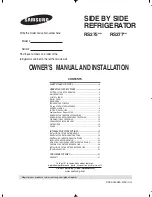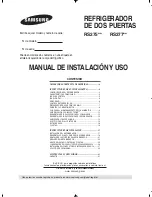
Electrical connection
64
The outlet must be easily accessible in
an emergency so that the appliance can
be quickly disconnected from the elec-
trical supply in case of an emergency.
The socket must be located so that the
upper edge is a maximum
82" (2100 mm) distance from the upper
edge of the base of the kitchen cabinet.
If the outlet is no longer accessible
once the appliance has been installed,
an all-pole disconnect device with a
contact opening of at least 1/8" (3 mm)
must be present on site. The discon-
nect device may be circuit breaker, a
fuse, or a contactor (compliant with lo-
cal regulations).
The plug and power cord must not
come into contact with the back of the
appliance as vibrations can cause dam-
age to these components. This, in turn,
could result in a short circuit.
Do not plug in other devices behind this
appliance.
Do not connect the appliance to an in-
verter such as those used with an au-
tonomous energy source e.g.
solar
power
. When switched on, peak loads
in the system can cause the safety
switch-off mechanism to be triggered.
This can damage the electronic unit.
The appliance must not be used with
so-called
energy-saving devices
ei-
ther. These reduce the amount of en-
ergy supplied to the appliance, causing
it to overheat.
If the power cord needs to be replaced,
this must be done by a qualified techni-
cian.
















































